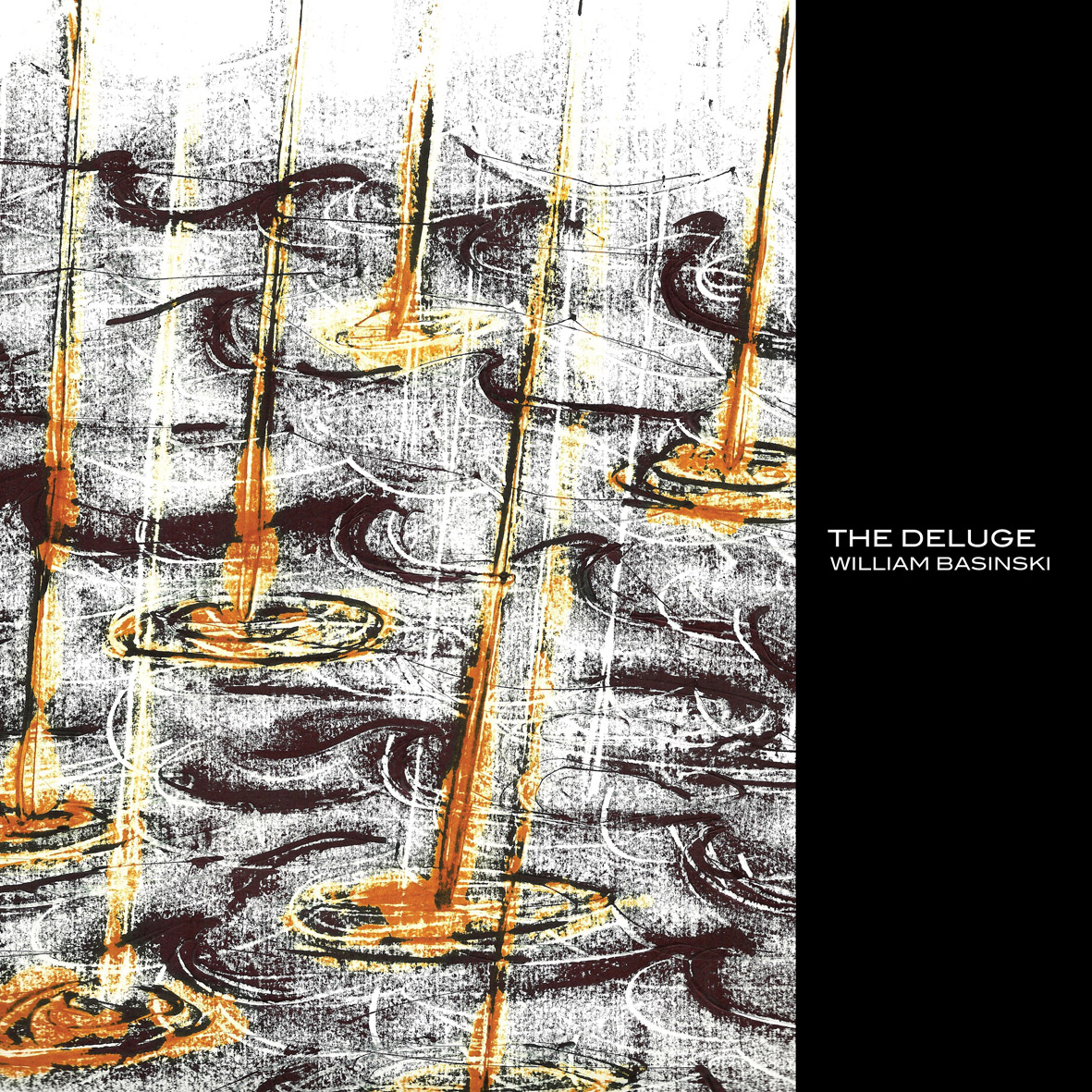 Given how much I loved Cascade, my curiosity about this more ambitious companion album made for quite an impatient month of anticipation.  Unfortunately, now that The Deluge has finally arrived, I do not know quite what to make of it.  My initial gut feeling was that Basinski's added intervention diluted a piece that was already perfect and complete, but it has since grown on me quite a bit with repeated listens.  While I still feel that Cascade is the superior album, The Deluge mostly balances out its flaws with some higher highpoints than its predecessor.  Also, it will likely hold a lot of appeal for anyone who has always wanted to love William Basinski, but wished he were more dynamic (though I personally prefer him as just an invisible guiding presence).
Given how much I loved Cascade, my curiosity about this more ambitious companion album made for quite an impatient month of anticipation.  Unfortunately, now that The Deluge has finally arrived, I do not know quite what to make of it.  My initial gut feeling was that Basinski's added intervention diluted a piece that was already perfect and complete, but it has since grown on me quite a bit with repeated listens.  While I still feel that Cascade is the superior album, The Deluge mostly balances out its flaws with some higher highpoints than its predecessor.  Also, it will likely hold a lot of appeal for anyone who has always wanted to love William Basinski, but wished he were more dynamic (though I personally prefer him as just an invisible guiding presence).
Unsurprisingly, The Deluge sounds almost exactly like Cascade when it begins, as it is constructed from the same brief, bittersweet, and endlessly looping piano motif.  The only noticeable difference is that it feels a bit like it is being played on a somewhat wobbly and erratic tape player this time around.  Gradually, however, Basinski's numerous, varying-length feedback loops begin to make their impact more and more prominent and the piece begins to take on a bleary, smeared, and after-image-heavy identity of its own.  That said, it still takes some time before it becomes fully evident why Basinski and Temporary Residence thought The Deluge warranted its own album.  For me, that point comes around the 8:40 mark, when ghost-like shuddering swells start to surface from the melancholy haze of fragile piano.  While that particular feat of illusion does not stick around for very long, it is more than enough to justify this album's existence, as it is completely unexpected, weirdly natural-seeming, and eerily beautiful, as if the tape loop finally became worn down enough to set free the dark, buried secret fluttering beneath the notes.
About ten minutes later, The Deluge offers up yet another surprise, as the delicate piano theme slowly fades away to be replaced by a stuttering and overlapping new piano motif.  Again, however, that transformation is short-lived, as The Deluge then surges into an obsessively repeating orchestral crescendo before fading into a single undulating drone.  That might seem like a logical ending point, but the piece resurfaces yet again…sort of, anyways: the last ten minutes are an unadultered reprise of the Cascade album (part of it, at least).
There is definitely a lot to like about The Deluge, as Basinski’s transformative use of feedback loops managed to extract an added layer of mysterious beauty from a piece that was already one of my favorites.  Also, the orchestral passages are a bit of an unexpectedly playful, yet darkly evocative new facet to Basinski's aesthetic.  If it had been perfectly executed, I would place The Deluge near the top of Basinski’s discography, but it regrettably has some quirks that take it down a few pegs.
The first is a huge peeve of mine:  releasing pieces on vinyl that are too long to fit on one side of an album.  To his credit, William at least found a logical stopping point, as the first side feels like its own complete piece (the opening piano loop fades out 20 minutes after it started).  The problem is that that is not the end of the piece, as the remaining movement kicks off the second side and feels like something new altogether.  Also, there are some odd transitions and a feeling of being condensed as well- I did not like Basinski's tendency to always fade into silence between motifs, nor was I thrilled about how the appended version of Cascade lasted only ten minutes, as duration was an extremely important part of the original Cascade’s power.  Ultimately, I still think The Deluge is a great album, but I cannot escape the exasperating irony that Williams’s successful attempt to expand his scope as a composer coincides with the unfortunate decision to compose specifically for the media most ill-suited for its presentation.
 
Read More

